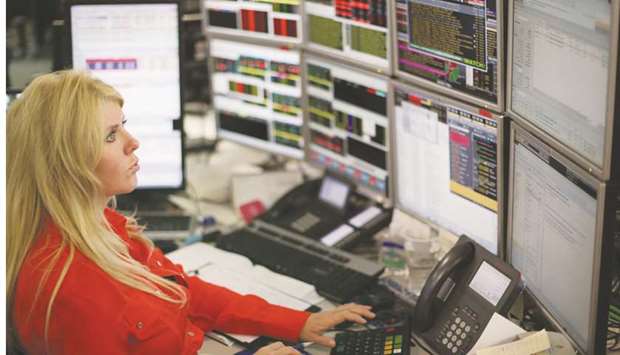The pound fell yesterday as more Brexit uncertainty surfaced, culminating in the British parliament’s speaker telling the government it could not re-submit an unchanged, twice-rejected Brexit deal to MPs.
Sterling’s drop helped push up London’s stock market that features numerous multinationals whose earnings come other currencies, while eurozone equity indices were a mixed bag at the close and Wall Street softened slightly in New York mid-session business.
“Thanks to the pound’s shaky start, the FTSE was able to continue its recent rally,” noted Connor Campbell, an analyst at the Spreadex trading group.
The pound rallied last week, illustrating markets’ surprising confidence of there being an eventual smooth EU exit for Britain despite political unrest over sealing the country’s divorce.
In Europe, London’s FTSE 100 gained 1% to 7,299.19 points, Frankfurt’s DAX 30 was down 0.3 % at 11,657.06 and Paris’s CAC 40 rose 0.1% to 5,412.83 points at close yesterday.
But yesterday it slipped as uncertainty about government and parliament action before the March 29 deadline made it “the worst performing major currency on the day”, David Cheetham at xtb said.
First, British Prime Minister Theresa May’s government on Sunday warned that it may not hold a planned Brexit vote this week unless it feels it can secure a win that avoids a lengthy delay to pulling out of the EU.
Then, the pressure on sterling increased in the late European afternoon when the House of Commons speaker said that on procedural grounds, the government cannot submit its Brexit deal for another vote in parliament if it is “the same” or “substantially the same” to the one already rejected by MPs.
The pound’s downside was, however, limited as most investors had already priced in a delay of Brexit as the most likely scenario, analysts said.
Elsewhere yesterday, Asian stock markets closed higher as investors tracked Friday’s positive lead from Wall Street on optimism over China-US trade talks.
“The signing of a trade deal between the US and China would eliminate one major headwind for global markets and is currently the more probable outcome,” said James Hughes, chief market analyst at AxiTrader.
“There is more of an incentive for both superpowers to make a deal because it is economically in their best interests.
This is especially the case given the growing US trade deficit due to falling exports to China.”
An upcoming Fed meeting will meanwhile be closely followed for clues on the outlook for US interest rates, with some observers suggesting that the central bank would pare its pace of hikes in the face of a slowing global economy.
On the corporate front yesterday, share prices in Deutsche Bank and Commerzbank surged after Germany’s two biggest lenders on Sunday said they planned formal talks over a possible merger.
The banks, both grappling with painful restructurings after years of falling profits, have long been the subject of merger rumours.
The main oil futures contracts were up after major producers led by Saudi Arabia agreed yesterday to keep working together to prop up crude prices, although they said they would decide only in June on whether to extend production cuts.

A trader works at the London Stock Exchange. The FTSE 100 gained 1% to 7,299.19 points yesterday.


